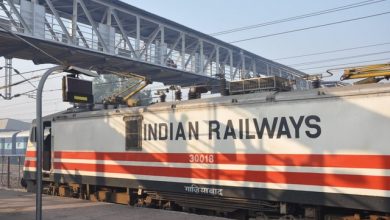United Forum Of Bank Unions (UFBU) Serves Notice Of Strike To Government

United Forum Of Bank Unions (UFBU), an umbrella body of nine unions of bank employees across India which includes All India Bank Employees’ Association (AIBEA), All India Bank Officers’ Confederation (AIBOC), National Confederation of Bank Employees (NCBE), All India Bank Officers’ Association (AIBOA), Bank Employees Federation of India (BEFI), Indian National Bank Employees Federation (INBEF), Indian National Bank Officers Congress (INBOC), National Organisation of Bank Workers (NOBW) and National Organisation of Bank Officers (NOBO), has today served its notice for strike for March 15 and March 16 to Chairman, Indian Banks’ Association and the Chief Labour Commissioner. The detailed notice served by the UFBU is given below for the benefit of the viewers of www.indianpsu.com
UFBU STRIKE NOTICE
We reproduce hereunder the text of UFBU Notice for Strike dated 18.02.2021 for your information. We once again urge upon all our
affiliates/ state/ district units to plunge into action involving all stakeholders for the thunderous success of the strike.
With revolutionary greetings,
STATEMENT OF THE CASE
1. Privatisation of Public Sector Banks – WE OPPOSE
Whereas the Government has been pursuing the policies and programmes of divesting, weakening the Public Sector Banks, through its various measures, including privatization.
Though country attained independence in 1947, it remained backward economically. Basic and broad-based economic development was the need of the hour. But unfortunately, the then Banks, which were all in private hands and many of them owned by big industrial and business houses, did not come forward to contribute in the process of development. Agriculture sector, Rural and Cottage Industries, Small Industries and Business, which were the mainstay of our economy and other pivotal sectors of the economy remained neglected. Nationalization of Banks and bringing them under Public Sector became very critical and crucial for giving impetus to country’s growth and progress.
In this background, 14 major private Banks were nationalized in 1969 and 6 more in 1980. State Bank of India, its Subsidiary Banks, as well as the Regional Rural Banks, and the nationalized banks became the sheet anchor of national economic development. Banks started reaching out to the common masses, bank branches started to be opened in rural areas and remote villages, precious savings of the people were mobilized and brought into banking system. Hitherto, neglected sectors like agriculture, employment generation productive activities, poverty alleviat ion programmes, rural development, health, education, exports, infrastructure, women empowerment, small scale and medium industry, tiny and micro industries, etc. became the priority sector and focused attention of Banks.
Class Banking was transformed into Mass Banking and the common man and deprived section of society could access, convenient and safe banking services. Economy got boosted and there were many large strides and achievements in the past 5 decades.
Public Sector Banks are the very vehicles of our economy’s growth and development . PSBs have become the trustees of people’s savings and the repository and depository of the people’s confidence. Public Sector Banks are the reservoirs to irrigate the economic development in our country. Public Sector Banks contribution to make the country’s self-sufficiency is immense as they played pivotal role in all revolutions like green, blue, dairy etc. Public sector Banks not only unshackled the farmer s, landless laborers and the rural populace from the clutches of money lenders, but also provided much required credit which made rural India a strong component of country’s economy. Today’s major infrastructural development has the highest contribution from Public Sector Banks.
Public Sector Banks are earning huge Operating profits, as can be seen hereunder:
Operating Profits of Public Sector Banks – at a glace
Year Total Operating Profits
2009- 1076,945 crores
2010-11 99,981 crores
2011-12 1,16,337 crores
2012-13 1,21,839 crores
2013-14 1,27,632 crores
2014-15 1,38,064 crores
2015-16 1,38,191 crores
2016-17 1,59,022 crores
2017-18 1,55,690 crores
2018-19 1,49,804 crores
2019-20 1,74,336 crores
Instead of further strengthening public sector banking, the present policies are aimed to weaken PSBs, by starving them of the requiredcapital, human resources, through disinvestment and proposed privatization. Weakening our public sector banks is unwarranted, unjustified and regressive step. We demand strengthening of Public Sector Banks, by adequate infusion of capital, human resources and strengthened statutory framework to recover the stressed assets.
Whereas the Government has made announced its intent to privatize the Public Sector Banks in the recent budget session.
The nationalization of private banks in 1969 and 1980 are watershed events. Bank Nationalization, lead to private banks being pressed into the service of the Nation; Public Sector Banks took birth, ushering in new era of next-door, trusted banking services to the citizenry. This resulted in exponential growth of bank branches; making available much needed funds to the credit starved sectors like agriculture, small, village and cottage industries, small entrepreneurs, share croppers, deprived section of society, liberating them from the slavery to money lenders. Public Sector Banks became pivot on which the progress of the country revolved. Today’s rural/semi-urban India prosperity, infrastructural facilities, industrial advancement and the improved standards of life of common man is the result of the dedication of Public Sector Banks. In the garb of efficiency, and mis-conceived policy to shrug of the responsibilit y, Government has embarked upon privatization of Public Sector Banks.
It is irrefutable that “privatization” neither brings efficiency nor the safety. Around the world innumerable private banks have failed. It is a myth to believe that only “privates” are efficient. If private enterprises are epitome of efficiency, there should not have been any NPAs from large private corporate entities at all. The NPAs/stressed assets of the banking industry belong to private large corporate which incontrovertibly, unquestionably demonstrates that private enterprises does not denote efficiency.
Public Sector Banks are nation builders. They have humungous value of assets, and lakhs of crores of funds with them. It would be irrational and, rather, mischievous and an ulterior motive to place the huge network of bank branches, infrastructure and assets of Public Sector Banks in the hands of private enterprises/business houses or corporates. This would incontrovertibly result in denial of easy, next door and safe banking to the populace of the country . This would also result in denial of convenient, economical banking services to the common man. This is regressive inasmuch as it turns the clock back to class banking from mass banking. This would also pave the way for monopoly and cartelization. This is a retrograde measure for a developing country like ours where banking network needs to be spread further, with a sense of social responsibility also, which would be highly lacking if banks are privatized.
Public Sector Banks are the life line of the country. They should remain so. We strongly oppose any move to privatize public sector Banks. The public sector banks belong to the billions and billions of citizenry and we oppose any action to hand them over to the billionaires.
2. Retrograde Banking Reforms – WE OPPOSE
Whereas we have been opposing misplaced, retrograde banking reforms that were introduced in the year 1991 for the reason that these measures are aimed at privatization of public sector banks, than enabling them to be stronger. The intent has now been clearly exhibited by the demonstrated actions of the government through its discrimination in capitalization, dilution of stake in PSBs, irrational policies encouraging ffi Private Sector Banks, attempts of privatization, allowing licenses of Small Banks and Payments to private corporate, blaming the Public Sector Banks alone for the alarming position of NPAs, showing them in poor light. Instead of tightening the laws to recover the large NPAs, laws like Insolvency and Bankruptcy Codes have been promulgated forcing hair cuts upon PSBs in the garb of “NPA Resolution”.
Despite opposition from the trade unions, stakeholders in the banking industry, the Government is unrelenting and continuing the misplaced reforms at neck-breaking speed.
As important stakeholder in Banking Sector, we owe a pious duty to the citizenry of the country to guard the Public Sector character of Banks in order to ensure safe, economic and easy access of banking facilities, sans exploitation, to the common man of the country and not to place the humungous assets, network of bank branches and lakhs of crores rupees in the hands of private corporate/businessmen and the business houses. Hence, we oppose any ill-conceived reforms in banking space.
Whereas we have been demanding stringent measures to recover the large corporate stressed assets which are the cause of concern to the Banks, including strong recovery laws and taking criminal action against willful defaulters. Government has not exhibited its firm willingness to implement these possible, plausible and implementable measures.
On the other hand, Government is seriously continuing the retrograde reform measures ignoring the real menace in the banking industry i.e. mounting bad loans and the growing list of Willful defaulters. Willful default by large corporate borrowers, imposed hair-cuts through ill conceived Insolvency and Bankruptcy Code, has resulted in heap of write offs, making dent on the balance sheet of Public Sector Banks. This has not only affected the profitability of the banks, but has become an alibi to allege inefficiency. The hard work of dedicated bank personnel has been constrained to go in vain.
There is an urgent, decisive and imperative need to bring in suitable statutory framework to consider willful default of bank loans as “Criminal Offence” as this can alone deter such willful default, consequential NPAs and strengthen Public Sector Banks to enable the country to achieve overall development. Equally, there is also urgent need for framework to examine the accountability of Board level/top executives. These will deter NPAs in the Banks.
It has, therefore, become inevitable for the United Forum of Bank Unions to convey our protest and draw the attention of the Government and Bank managements through agitational programmes and strike action and accordingly this Notice of strike is being served after exhausting all reasonable avenues to convey our protests and the Government and concerned banks remaining adamant and determined on their decision.




